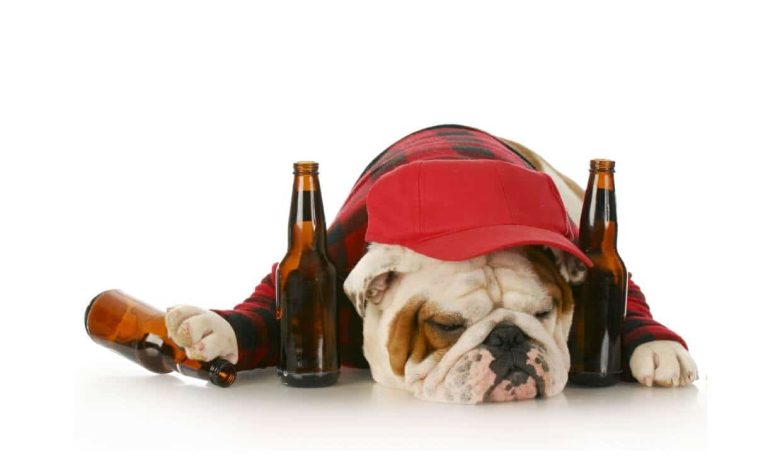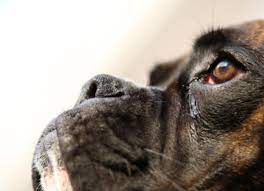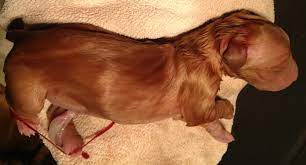Unleash the Secret: Dogs + Alcohol = Unforgettable Fun!

From casual social gatherings to festive celebrations, alcohol is often a part of human gatherings and indulgences. However, when it comes to our beloved furry friends, dogs, alcohol is anything but a cause for celebration. In fact, it poses severe risks and potential harm to their health and well-being. As responsible pet owners, it is essential to understand the dangers associated with dogs consuming alcohol and take necessary precautions to keep them safe.
Can Dogs Consume Alcohol?
Let’s address the elephant in the room – dogs should never consume alcohol. Alcohol, whether in the form of beer, wine, or spirits, is toxic to dogs. Unlike humans, dogs lack the necessary enzymes to metabolize alcohol efficiently. This means that even small amounts of alcohol can have a significant impact on their bodies, leading to various health complications.
Alcohol Poisoning in Dogs
Alcohol poisoning is a severe concern when dogs come into contact with alcohol. Just as humans can experience alcohol poisoning, dogs are also at risk. Symptoms of alcohol poisoning in dogs include vomiting, diarrhea, excessive thirst, difficulty breathing, coordination problems, seizures, and even coma. In some cases, alcohol poisoning can be fatal for our furry companions.
Alcohol-related Accidents and Injuries in Dogs
In addition to the direct effects of alcohol poisoning, dogs exposed to alcohol are at a higher risk of accidents and injuries. Alcohol impairs coordination, judgment, and cognitive function, leading to accidents such as falls, collisions, and even drowning in some cases. It’s crucial to understand that dogs are more vulnerable than humans to the negative consequences of alcohol consumption.
Recognizing Alcohol Poisoning in Dogs
Recognizing the signs of alcohol poisoning in dogs is crucial for prompt intervention. If you suspect your dog has consumed alcohol or is showing symptoms such as vomiting, disorientation, or an altered state, contact your veterinarian immediately. Time is of the essence when it comes to treating alcohol poisoning in dogs.
Treatment for Alcohol Poisoning in Dogs
Treating alcohol poisoning in dogs requires immediate veterinary care. Veterinarians may administer supportive treatment, such as intravenous fluids to flush the alcohol out of the dog’s system. They may also provide medications to alleviate symptoms and prevent complications. Never attempt to treat alcohol poisoning in dogs at home; always seek professional help.
Prevention and Safety Measures
Prevention is the best course of action when it comes to dogs and alcohol. It is vital to keep all alcoholic beverages out of reach from dogs, especially during gatherings or parties. Educate your guests about the dangers of alcohol for dogs and ask them to be mindful of their drinks. Additionally, ensure that garbage bins and recycling containers are secured to prevent dogs from accessing leftover alcoholic beverages.
See also: Golden Retriever Lab Mix New Facts Reviewed
Alternatives and Safe Beverages for Dogs
If you want to include your furry friend in a celebratory toast, opt for safe and suitable alternatives. Dog-friendly beverages such as non-alcoholic dog beer or specialized pet-friendly drinks are available in the market. These beverages are designed to be safe for dogs and provide them with a refreshing experience without risking their health.
Conclusion
In conclusion, dogs and alcohol are a dangerous combination. The toxic effects of alcohol on dogs’ bodies, the risk of alcohol poisoning, and the increased likelihood of accidents and injuries make it clear that alcohol and dogs should never mix. As responsible pet owners, it is our duty to prioritize our pets’ well-being and safety by keeping them away from alcohol and providing them with suitable alternatives for a delightful and enjoyable experience.
FAQs (Frequently Asked Questions) about Dogs Alcohol
Here are the most FAQs about Dogs alcohol:
Can dogs tolerate a small amount of alcohol?
No, even small amounts of alcohol can have significant adverse effects on dogs’ health. It’s best to avoid alcohol entirely.
Are there any safe alcoholic beverages for dogs?
No, alcoholic beverages are not safe for dogs. Opt for specialized dog-friendly beverages instead.
What should I do if I suspect my dog has consumed alcohol?
If you suspect alcohol consumption in your dog or notice any symptoms, contact your veterinarian immediately for guidance.
Can dogs develop alcohol addiction?
While dogs can become dependent on certain substances, alcohol addiction is not a common issue among dogs.
Are there any long-term effects of alcohol poisoning in dogs?
Alcohol poisoning can have lasting effects on a dog’s health, including organ damage, neurological issues, and an increased risk of seizures.




